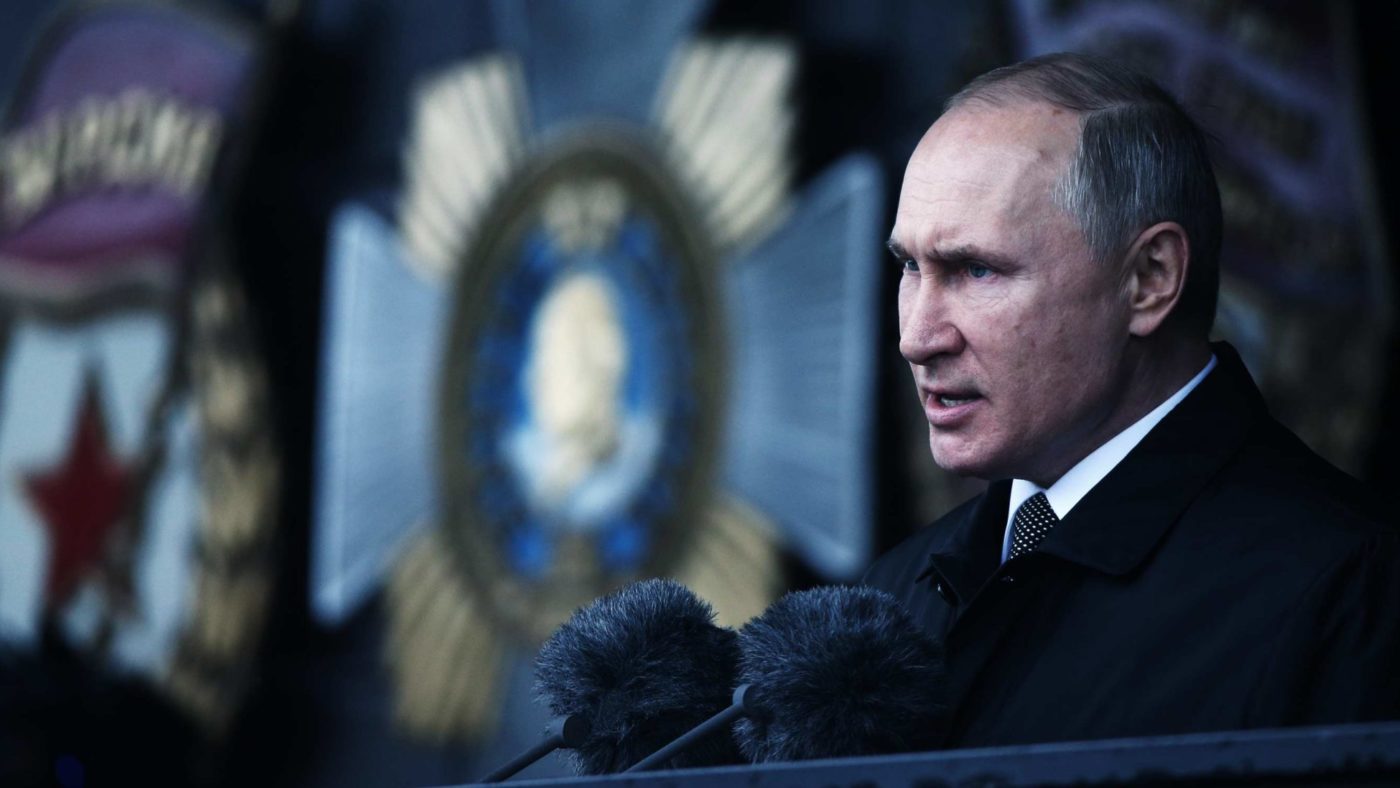Vladimir Putin’s Russia is nothing if not ruthlessly consistent: it ignores international mores by meddling in the US and other nations’ sovereign elections, spreads fake news and shameless propaganda among Western audiences using social media “troll factories” — and it tramples the Russian people’s rights at home, from freedom of speech and demonstration to property rights.
Cases where the West retaliates are very rare, but they do happen.
Case in point: The February verdict in a Dutch court, reinstating the $50 billion in damages – plus interest – due to the former majority shareholders of the now defunct Yukos Oil Company that followed an unlawful expropriation by Vladimir Putin’s burgeoning kleptocracy. It is hardly surprising that commentators are fixated on the amount of the compensation. That’s a lot of money, even for a regime that steals tens of billions from its own people each year.
But the true cost of the Yukos expropriation is not measured in billions of dollars, but in liberty and even lives lost in what became one of the most brutal political vendettas in modern times. The Borgias would blush at the Kremlin’s methods.The world is familiar with the rise and fall of Mikhail Khodorkovsky, a tragedy in three parts that is skilfully told in Alex Gibney’s new documentary, Citizen K. He and his business partner, Platon Lebedev, both spent more than a decade in Russian labour camps following sham trials worthy of Stalin. The story of their colleagues is less well known but it needs to be told.
Alexey Pichugin was not part of Yukos’s management team – he was a mid-level manager in the company’s security department – but that didn’t stop him falling victim to the Kremlin’s assault on the company. Pichugin has now been in jail for more than 16 years on charges that are as absurd as they are cruel. He is Russia’s longest-serving political prisoner, still detained in spite of two rulings from the European Court of Human Rights that say he never had a fair trial, and the calls from the UN Working Group on Arbitrary Detention and the Committee of Ministers of the Council of Europe for an immediate release. Despite relentless pressure to sign false testimony against his former colleagues, Mr Pichugin refuses to this day.
In a similar case, Vasily Aleksanyan, a lawyer who headed Yukos’s legal department, was held in pre-trial detention for more than two years. Having fallen gravely ill in jail, Mr Aleksanyan was repeatedly denied urgent medical attention because he too refused to give false testimony. Barely able to stand in court and chained to a hospital bed, Mr Aleksanyan never recovered. He died at the age of 39.
The European Court of Human Rights has condemned Russia seven times for violating the basic rights of the four Yukos employees. Seven times, Russia has simply ignored European court rulings. None of the men targeted for Putin’s wrath received a fair trial; all of them have suffered the most inhuman treatment.
In spite of these egregious breaches of its citizens’ rights, Russia was last year restored as a full member of the Council of Europe, the continent’s guardian of human rights and home to the Strasbourg court. The reprieve came even though Russia had done nothing to address the cause of its original sanctioning: the invasion of Ukraine and illegal annexation of Crimea.
While Russian opposition leaders and activists welcomed the decision, arguing the court offered the only reliable venue to mete out justice, others saw a betrayal of Europe’s values. Now, the new amendments to the Russian Constitution introduced by President Putin in January will enshrine Russia’s right to avoid complying with European Court rulings. Why keep Russia in the club when it continues to break the rules and openly declares that it has a right to do so?
That is why the new ruling from The Hague is much more than the settling of an investment dispute. The Dutch court has established the truth, and confirmed the findings of a rigorous and independent tribunal. It has shown that Vladimir Putin and his cronies are not above the law, and must be held to account.
This is an important victory, but it’s not enough. Western democracies must be more alert to the threats Putin’s regime poses, and defend themselves more pro-actively – politically, legally, and economically.
Click here to subscribe to our daily briefing – the best pieces from CapX and across the web.
CapX depends on the generosity of its readers. If you value what we do, please consider making a donation.


